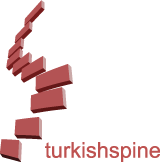ABSTRACT
There are complications related to blood loss, impaired liquid-electrolyte balance, drug side effects due to anesthetic applications and overdose complications due to airway and ventilation problems, central venous intervention, iatrogenic neurological and vascular injuries, internal organ injuries, cardiac arrest due to vagal reaction or any other idiopathic causes in spinal surgery. The aim of our study is to pass on our experience about cardiopulmonary arrest development, which is a rare complication in a perioperative period, and treatment of this situation in a patient with Scheuermann’s kyphosis who is planned to operate with posterior surgery. Our patient was a male, 17 years old, 170 cm long, weighing 50 kg with a T3-T12 lateral cobb angle of 77 degrees thoracic kyphosis without waist and back pain. During the operation, hyperkalemia, which was thought to be related to hemolysis and massive blood transfusion, was noticed as a pathological finding in the blood tests. The patient intervened with the defibrillator after starting ventricular fibrillation and spontaneous breathing after 45 minutes of resuscitation. He was taken to intensive care unit immediately. He was transferred to in-room service after 9 days. Post-operative evaluation of the patient did not reveal any neurological deficits due to global ischemia secondary to cardiac arrest or because of the surgical procedure. He was discharged after 4 days and started to work after 5 months. We thought that cardiac arrest development is associated with massive transfusion and /or hyperkalemia secondary to hemolysis. The cause of hemolysis was not clearly demonstrated.



